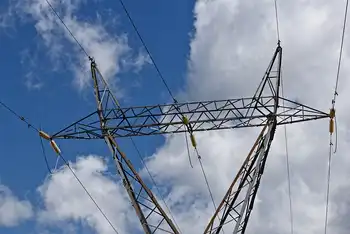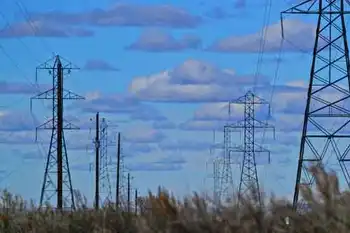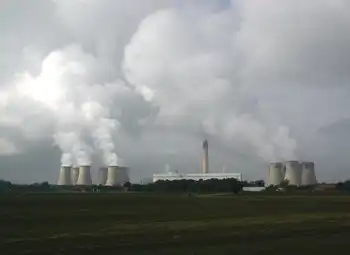Power system to change in 2009
By Edmonton Journal
Arc Flash Training CSA Z462 - Electrical Safety Essentials
Our customized live online or in‑person group training can be delivered to your staff at your location.

- Live Online
- 6 hours Instructor-led
- Group Training Available
The Alberta Electric System Operator has been meeting with interested parties for a year to discuss issues that have been raised about the operating reserves market that provides immediate electricity to the provincial grid in the event a generator suddenly shuts down.
Wayne St. Amour, the system operator's vice-president, said no decision has been made on fine-tuning the market, but legislation governing Alberta's deregulated electrical system may have to be amended for any changes to occur.
He didn't say when that might happen, but discussion reports on the organization's website suggest the independent electric system operator wants to implement at least some of the changes early this year.
"Our ambition is to have a fair, efficient, operational competitive market," St. Amour said. "If there's action to be taken, we'll look at it."
Stakeholders are apparently concerned about "perverse" contract conditions and the organization's influence on prices as well as transparency and "the complexity of the market relative to its size," says a summary document posted on the website.
The system operator is expected to release a discussion paper shortly that includes input from market participants.
Liberal MLA Hugh MacDonald said he is concerned that consumers are being left out of the discussion, just as they were shut out of the decision in 2001 to abandon the regulated system and create Canada's only functioning electricity market.
"What they call consultation is just with the stakeholders who benefit from deregulation," he said. "The consumers are completely left out of the discussion and they are the ones who have to pay the ever-increasing bills."
The system operator says consumers are welcome to comment on discussion papers posted on the Internet at www.aeso.ca.
Joseph Doucet, professor of energy policy at the University of Alberta's School of Business, said he doubted the proposed changes would shake investor confidence in Alberta's energy market, but it is difficult to assess what impact they might have on electricity pricing for consumers.
"It's an important piece, but a small piece of the major wholesale trading market," he said. "It's important for a functioning market but I would be hard-pressed to draw a line to show how the changes impact in terms of dollars and cents on your electric bill."
Evan Bahry, executive director of the Independent Power Producers Society of Alberta, said the proposed changes relate to "a small subset of the energy market — about five per cent of peak demand."
"This is a tweak in the operating reserve market," said Bahry, whose association has 135 members. "I don't think it's of the magnitude that would affect investor confidence."
The Alberta government has been criticized in the past for repeatedly making changes to the legislation that governs the electricity market.
Critics fear too much instability in the system may discourage electricity producers from investing in expensive power plants the province needs to meet a demand that's been surging at an annual rate that's equivalent to the amount of power needed to supply two cities the size of Red Deer.
MacDonald notes the market — not government — now determines when and where to build electrical supply.
He said there's already concern that the downturn in the economy has deferred a number of planned projects and reduced the amount of electricity the province keeps in reserve.
Last month, demand for electricity in Alberta reached an all-time high of 9,806 megawatts, breaking the previous record of 9,710 mW set last January. The Alberta Electric System Operator predicts Alberta will need to boost supply by another 5,000 mW in eight years to meet demand.
Bahry said the proposed reserve market changes reflect a concern that the system operator, the neutral player in the electricity market, is now acting as an agent for the procurement of operating reserves and influencing the price of electricity in the process.
One proposal is to have the electric system operator set the volume of required reserve electricity and have an agency, like the Natural Gas Exchange, purchase it, he said.
"Getting AESO out of market operations and being involved in the pricing dynamic — that seems to be a pretty significant proposal," Bahry said.











